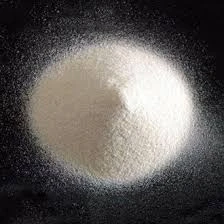
Dec . 01, 2024 00:26 Back to list
hydroxyethylcellulose uses
The Versatile Uses of Hydroxyethylcellulose
Hydroxyethylcellulose (HEC) is a non-ionic, water-soluble polymer derived from cellulose, a natural polymer obtained from plant cell walls. Its unique properties make it a versatile ingredient in various industries, including cosmetics, pharmaceuticals, food, and construction. This article explores the numerous uses of hydroxyethylcellulose, highlighting its benefits and applications.
The Versatile Uses of Hydroxyethylcellulose
In the pharmaceutical realm, hydroxyethylcellulose serves as a crucial excipient. Its role as a thickener and stabilizer enhances the viscosity of various formulations, including gels and ointments. This property is particularly useful in topical medications, where a consistent application is vital for effective delivery. Furthermore, HEC is often used in controlled-release formulations, aiding in the gradual release of active ingredients in oral medications, which enhances therapeutic efficacy and minimizes side effects.
hydroxyethylcellulose uses

The food industry takes advantage of hydroxyethylcellulose for its gelling and stabilizing abilities. It is often used in low-calorie and gluten-free products as a thickening agent. Its ability to modify the texture of food helps in improving mouthfeel, making it an essential ingredient in sauces, dressings, and dairy products. HEC is also recognized for its compatibility with various food systems, enhancing product stability without altering flavors or colors.
In the realm of construction and building materials, hydroxyethylcellulose plays a significant role as a functional additive. It is utilized in tile adhesives, cement mortars, and other construction mixtures to improve workability and adhesion. HEC enhances the spreadability and fluidity of these materials, ensuring a smooth application. Moreover, it contributes to water retention, which is critical in ensuring that cement hydrates properly, thereby enhancing the overall durability of structures.
Another exciting application of hydroxyethylcellulose is in the field of oil drilling. HEC is used to formulate drilling fluids, providing excellent viscosity control and suspension properties. These properties are essential for carrying drilling cuttings to the surface, preventing wellbore collapse, and reducing friction during the drilling process.
In conclusion, hydroxyethylcellulose is a highly versatile polymer with applications spanning multiple industries. From cosmetics to pharmaceuticals, food, construction, and oil drilling, its unique properties offer significant advantages, including improved texture, stability, and efficacy. As industries continue to evolve and seek sustainable and effective ingredients, the importance of hydroxyethylcellulose is likely to grow even further, solidifying its position as a key component in modern formulations and applications. Its ability to enhance product performance while maintaining safety and sustainability makes it an invaluable ingredient in today’s marketplace.
-
Versatile Hpmc Uses in Different Industries
NewsJun.19,2025
-
Redispersible Powder's Role in Enhancing Durability of Construction Products
NewsJun.19,2025
-
Hydroxyethyl Cellulose Applications Driving Green Industrial Processes
NewsJun.19,2025
-
Exploring Different Redispersible Polymer Powder
NewsJun.19,2025
-
Choosing the Right Mortar Bonding Agent
NewsJun.19,2025
-
Applications and Significance of China Hpmc in Modern Industries
NewsJun.19,2025







